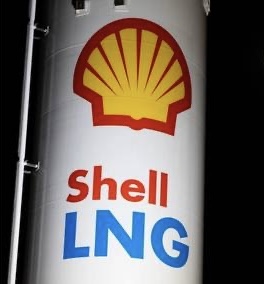KEY POINTS
- Amnesty International insists Shell must clean up decades of oil pollution in Nigeria’s Niger Delta despite selling its subsidiary and exiting the region.
- Rights groups and UN monitors say repeated spills amount to human rights violations, demanding compensation and environmental remediation for affected communities.
- Investigations reveal ongoing failures in the $1 billion Ogoniland cleanup, fueling concerns that Shell’s divestment leaves local residents without justice.
Amnesty International has declared that oil giant Shell cannot wash its hands of decades of environmental destruction in Nigeria’s Niger Delta, despite selling its subsidiary and exiting the country’s onshore oil business.
The rights group said in a statement on Friday that Shell’s sale of the Shell Petroleum Development Company of Nigeria Limited (SPDC) to Renaissance earlier this year does not erase the company’s long-standing responsibility for oil pollution that has ravaged communities across the region.
“Just because Shell recently sold its Nigerian subsidiary, it does not absolve the company of responsibility for its past actions in Niger Delta,” Amnesty stated.
Niger Delta’s Long-Standing Environmental Scars
The Niger Delta, home to over 30 million people, has endured more than half a century of oil spills, gas flaring, and environmental neglect that rights groups say have poisoned water sources, destroyed livelihoods, and driven communities deeper into poverty. Amnesty noted that it has documented these abuses since the 1990s, and its findings have been backed by international human rights monitors.
“The UN Special Rapporteurs have concurred with our finding that the repeated oil spills in the Niger Delta amount to violations of human rights. For every rights violation, there must be a remedy,” the group said.
Amnesty further insisted that Shell, alongside other oil firms, must not only clean up affected areas but also provide adequate compensation to local residents who have suffered decades of economic loss, health complications, and displacement.
“Shell and other companies responsible for oil spills in the region must therefore clean up affected areas and compensate local communities for the decades of harm caused by those violations,” it said.
Shell’s March announcement that it had completed the divestment of SPDC was framed as part of a wider restructuring strategy, allowing the company to shift its focus toward offshore operations and integrated gas projects. The divestment saw Renaissance assume control of SPDC’s 30% stake in a joint venture alongside the Nigerian National Petroleum Corporation (55%), Total Exploration and Production Nigeria (10%), and Agip Energy and Natural Resources (5%).
However, Amnesty warned that oil firms must divest responsibly and ensure that exit plans respect human rights and the environment. “We call on Shell and other oil companies to responsibly divest themselves of assets and operations in a way that respects human rights and the environment,” the group added.



